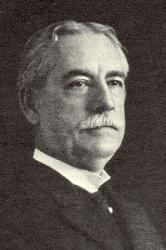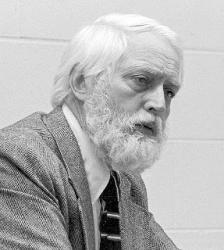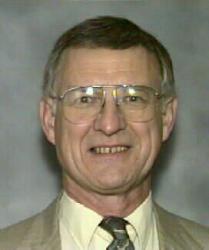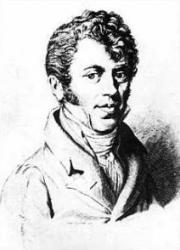Planning worship?
Check out our sister site, ZeteoSearch.org,
for 20+ additional resources related to your search.
- |
User Links
Person Results
Noel Donnelly
Topics: Affliction; Atonement; Biblical Names and Places Jerusalem; Church Year All Saints' Day; Church Year Baptism of the Lord; Church Year Easter; Church Year Maundy Thursday; Commitment; Darkness; Despair; Discipleship; Doubt; Elements of Worship Lord's Supper; Elements of Worship Praise and Adoration; Elements of Worship Testimony; Fear; Freedom; God Obedience to; God Trust in; God's Word; God's Forgiveness; God's Goodness; God's Love; God's Name; God's People (flock, sheep); God's Promises; Grace; Gratitude; Grave; Guilt; Jesus Christ Incarnation; Life Stages Death; Loneliness; Love for God; Mercy; Occasional Services Dedication to Discipleship; Offering of Sacrifice; Prayer Answer to; Prayer; Rejoicing; Remnant of Isarel; Rest; Sorrow; Suffering; The Fall; The Incarnation; Vows; Year A, B, C, Holy Week, Maundy Thursday; Year A, Easter, 3rd Sunday; Year A, Ordinary Time after Pentecost, June 12-18 (if ater Trinity Sunday); Year B, Ordinary Time after Pentecost, September 11-17 Author of "Psalm 116: 1-2, 12-19 (A Responsorial Setting)" in Psalms for All Seasons
Noel Donnelly
B. C. Unseld

1843 - 1923 Person Name: Benjamin C. Unseld Topics: Afflictions Deliverance from; Afflictions Promises for; Angels; Assurance Declared; Blessedness Of Those Fearing God; Cares; Christ Abiding with Believers; Christ Glorying in; Christ Grace and Love of; Christians Believers; Christians Blessedness of; Christians Conscious of Safety; Deliverance from trouble; Faith Blessedness of; Godly Fear Blessedness of; Godly Fear Exhortation to; Glory of God In Providence; God Our Guardian; God Hearer of Prayer; God Love and Mercy; God Source of All Good; Gospel Fulness of ; Gospel Gracious Fruit of; Gospel Privileges of; Grace Justifying; Praise For God's Mercy; Praise For Spiritual Blessings; Praise for temporal blessings; Prayer Answers to; Prayer confidence in; Prayer Promise to; Preservation; Protection Only from God; The Christian's Reward; The Righteous Deliverances of; The Righteous Honor and Safety of; Safety Assured; Salvation God's Gift; Seeking God; Sin Salvation from; Thanksgiving Declared; Trust in God Blessedness of Composer of "EUPHEMIA" in The Psalter Benjamin Carl Unseld, 1843-1923
Born: October 18, 1843, Shepherdstown, West Virginia.
Died: November 19, 1923.
Buried: Elmwood Cemetery, Shepherdstown, West Virginia.
After leaving school at age 14, Unseld worked as a clerk in a country store. He received his first musical instruction around age 15, from a companion who had attended a singing school. He was shown the representation of the scale in the old Carmina Sacra, and had it sung for him. At the friend’s suggestion, he got permission from his pastor to practice on the church organ. Since both boys worked, their only chance to practice was after the store closed at 9:00 p.m., and occasionally at noontime. They went to the church together and took turns, one at the keyboard and the other at the bellows.
Shortly after the Battle of Antietam in September 1862, some of which Unseld witnessed, he left home and became a bookkeeper in the general offices of a railroad in Columbia, Pennsylvania. He sang in a choir, and gained further practice reading music. He rented a melodeon and spent much time in his room improvising on it. He bought a copy of Woodbury’s Harmony and Musical Composition, and studied it as well as he could without a teacher. He accepted an invitation to play the organ in the local Methodist church, on the condition that he received the tunes early in the week so he could learn them. This was his first position as an organist.
In the spring of 1866, he entered the Musical Institute in Providence, Rhode Island, conducted by Eben Tourjée (founder of the New England Conservatory in Boston, Massachusetts, and father of Lizzie Tourjée). There he studied voice, piano, organ, and harmony. After learning of Unseld’s business experience, Dr. Tourjée made him secretary of the school; in 1867, Unseld became the first secretary of the New England Conservatory.
Starting in 1870, Unseld attended schools led by Theodore F. Seward. There he met George Webb, Lowell Mason, James McGranahan, Charles Case, and other notables in the music community. In 1874, Unseld taught at Fisk University in Nashville, Tennessee, and helped train Fisk’s Jubilee Singers for their European trip. In 1877 and 1878, he was organist and choir master at St. James’ Episcopal Church, Lancaster, Pennsylvania.
In 1879, Unseld moved to New York City, and for 15 years taught, led choirs, composed and published. In New York, his musical headquarters was the publishing house of Biglow & Main Company, where he was in almost daily contact with the popular composers and teachers of the day: Ira Sankey, Horatio Palmer, Hubert Main, Robert Lowry, et al. In 1894, Unseld moved to Cincinnati, Ohio, and worked as an editor for the Fillmore Music House. In 1898, he moved to Dayton, Ohio, and worked in a similar capacity for the Lorenz Publishing Company. He moved back to New York City in 1901, then to Hagerstown, Maryland in 1905. He and his wife Sallie were apparently living in Tennessee as of 1920. Unseld’s works include:
The Choral Standard (New York: Fillmore Brothers, 1895)
Progress in Song, with E. T. Hildebrand (Cincinnati, Ohio: The Fillmore Brothers Company)
Unseld was inducted into the Southern Gospel Music Association Hall of Fame in 2004.
Sources--
Hall, pp. 239-44
Music--
Ancyra
Euphemia
He Is Risen
Hordville
Make Haste!
Meschach
Twilight Is Falling
Unseld
Wonderful Message
--www.hymntime.com/tch
B. C. Unseld
W. Arnold
1768 - 1832 Person Name: William Arnold Topics: Adoption; Afflictions Deliverance from; Afflictions Promises for; Assurance Declared; Blessedness Of Those Fearing God; Cares; Character Good and Bad Contrasted; Children Instruction of; Christians Christ the Life of; Christians Conscious of Safety; Christians Duties of; Christians Evangelists; Deliverance from trouble; Glory of God In Providence; God Our Guardian; God Hearer of Prayer; God Love and Mercy; God Source of All Good; Gospel Gracious Fruit of; Gospel Preaching of; Gospel Privileges of; Gospel Sanctifying and Saving; Heart Good, Perfect, Pure and Upright; Holiness Of Christians; Judgments On the Wicked; Parents and Children; Prayer Answers to; Prayer confidence in; Prayer Promise to; Preservation; Protection Only from God; The Christian's Reward; The Righteous Deliverances of; The Righteous Honor and Safety of; The Righteous Troubles of; Safety Assured; Salvation God's Gift; Sin Salvation from; Trust in God Blessedness of; The Wicked Fate of Composer of "ALEXANDRIA" in The Psalter
W. Arnold
William Hayes

1706 - 1777 Topics: Afflictions Deliverance from; Afflictions For sin; Afflictions From the Wicked; Afflictions Promises for; Cares; Christians Blessedness of; Contentment; Death Of the Wicked; Glory of God In Providence; Patience; Prosperity Without God's Blessing; Providence of God Over Saints; Resignation; Retribution Threatened; The Christian's Reward; The Righteous Contrasted with the Wicked; The Righteous Hated by the Wicked; The Righteous Honor and Safety of; Safety Assured; Trust in God Exhortation to; Waiting upon God ; The Wicked Fate of Composer of "KINGSTON" in The Psalter William Hayes (26 January 1708 (baptised) – 27 July 1777) was an English composer, organist, singer and conductor.
Hayes was born in Gloucester. He trained at Gloucester Cathedral and spent the early part of his working life as organist of St Mary’s, Shrewsbury (1729) and Worcester Cathedral (1731). The majority of his career was spent at Oxford where he was appointed organist of Magdalen College in 1734, and established his credentials with the degrees of B.Mus in 1735 and D.Mus in 1749. (He was painted by John Cornish in his doctoral robes around 1749.) In 1741 he was unanimously elected Professor of Music and organist of the University Church. He presided over the city’s concert life for the next 30 years, and was instrumental in the building of the Holywell Music Room in Oxford in 1748, the oldest purpose-built music room in Europe. He was one of the earliest members of the Royal Society of Musicians, and in 1765 was elected a ‘privileged member’ of the Noblemen’s and Gentlemen’s Catch Club. He died in Oxford, aged 69.
William Hayes was an enthusiastic Handelian, and one of the most active conductors of his oratorios and other large-scale works outside London. His wide knowledge of Handel left a strong impression on his own music, but by no means dominated it. As a composer he tended towards genres largely ignored by Handel—English chamber cantatas, organ-accompanied anthems and convivial vocal music—and his vocal works show an English preference for non-da capo aria forms. Hayes also cultivated a self-consciously ‘learned’ polyphonic style (perhaps inspired by his antiquarian interests) which can be seen in his many canons, full-anthems, and the strict fugal movements of his instrumental works. Nevertheless, several of his late trio sonatas show that he was not deaf to newly emerging Classical styles. Although he published virtually none of his instrumental music, his vocal works were extremely popular, and the printed editions were subscribed to by large numbers of amateur and professional musicians. Substantial works like his ode The Passions, the one-act oratorio The Fall of Jericho, and his Six Cantatas demonstrate that Hayes was one of the finest English composers of the eighteenth century.
As a writer, his Art of Composing Music includes the first published description of aleatoric composition—music composed by chance—albeit deliberately satirical in intent. In his Remarks he reveals much about his aesthetic outlook: in particular that he valued the music of Handel and Corelli over that of Rameau, Benedetto Marcello and Geminiani. Finally, the Anecdotes offer insights into the organization of provincial music festivals in the mid-eighteenth century. Hayes bequeathed his important and wide-ranging music library to his son Philip Hayes; the manuscripts of both father and son eventually passed to the Bodleian Library, Oxford, in 1801.
Sacred works
The Fall of Jericho, oratorio, c. 1740–50
Sixteen Psalms (London, 1773)
David, oratorio, completed by Philip Hayes
around 20 anthems and service music, in Cathedral Music in Score, edited by Philip Hayes (Oxford, 1795)
--en.wikipedia.org/wiki
William Hayes
Vincent Novello
1781 - 1861 Topics: Afflictions Promises for; Afflictions Refuge in; Assurance Declared; Backsliding; Character Value of Good; Christ Abiding with Believers; Christ Preciousness of; Christians Believers; Christians Graces of; Church Security of; Covenant Promises; Faith Act of; God Our Guardian; Grace Sovereign ; Grace Sustaining; Heart Claimed of God; Heart God the Strength of; Heart Good, Perfect, Pure and Upright; Nature An Emblem of Grace; Prayer For Divine Favor; Prayer Intercession in; Prayer Promise to; Preservation; Protection Unceasing; The Christian's Reward; The Righteous Contrasted with the Wicked; The Righteous Honor and Safety of; Safety Assured; Steadfastness; Temptation; Trust in God Blessedness of Composer of "ALBANO" in The Psalter
Vincent Novello
Stanley M. Wiersma

1930 - 1986 Person Name: Stanley Wiersma, 1930-1986 Topics: Acrostic Psalms; Affliction; Biblical Names and Places Israel; Church Year Advent; Elements of Worship Baptism; Elements of Worship Confession (Individual); Elements of Worship Lord's Supper; Elements of Worship Praise and Adoration; Elements of Worship Prayer for Illumination; Forgiveness; God Daily Experience of; God Trust in; God as Guide; God as Judge; God's Compassion; God's Faithfulness; God's Forgiveness; God's Friendship; God's Promises; God's Protection; God's Way; Grace; Guilt; Hope; Humility; Jesus Christ Friend of Sinners; Jesus Christ Parables of; Joy; Lament Individual; Life Stages Youth; Loneliness; Mercy; Occasional Services Ordination and/or Installation; Prayer; Renewal; Rest; Salvation; Shame; The Fall; Trust; Truth; Worship; Year A, Ordinary Time after Pentecost, September 24-October 1; Year B, Lent, 1st Sunday; Year C, Advent, 1st Sunday; Year C, Ordinary Time after Pentecost, July 10-16 Author of "LORD, to You My Soul Is Lifted" in Psalms for All Seasons Pseudonym: Sietze Buning
**********
Stanley Marvin Wiersma (b. Orange City, IA, 1930; d. Amsterdam, the Netherlands, 1986) was a poet and professor of English at Calvin College, Grand Rapids, Michigan, from 1959 until his sudden death in 1986. He attended Calvin as an undergraduate and received a Ph.D. from the University of Wisconsin in 1959. His love for the Genevan psalms is reflected in the two books of poetry for which he is most widely known: Purpaleanie and Other Permutations (1978) and Style and Class (1982), both written under the pseudonym Sietze Buning. He also wrote More Than the Ear Discovers: God in the Plays of Christopher Fry and translated many Dutch poems and hymn texts into English, including the children's hymns published in All Will Be New (1982).
Bert Polman
Stanley M. Wiersma
Ernest R. Kroeger

1862 - 1934 Topics: Assurance Declared; Cares; Character Good and Bad Contrasted; Contentment; Death Of the Wicked; Discontent; Faith Act of; Faith Confidence of; Glory of God In Providence; Gospel Invitations of ; Heart God the Strength of; Man Mortal and Frail; Nature An Emblem of Grace; Nature Sinners Typified in; Patience; Prayer Promise to; Prosperity Without God's Blessing; Providence of God Over Saints; Resignation; Retribution Threatened; The Christian's Reward; The Righteous Contrasted with the Wicked; The Righteous Honor and Safety of; Safety Assured; Trust in God Exhortation to; The Wicked Fate of Composer of "JOSEPHINE" in The Psalter Born: August 10, 1862, St. Louis, Missouri.
Died: April 7, 1934, St. Louis, Missouri.
Buried: Bellefontaine Cemetery, St. Louis, Missouri.
Kroeger was a charter member of the American Guild of Organists; member the National Institute of Arts of Letters; conductor of the Amphion Male Chorus in St. Louis (1883-84); organist at the Unitarian Church of the Messiah, St. Louis (1886); director of the College of Music at Forest Park University (1887); president of the Music Teachers’ National Association (1896-97); president of the Missouri State Music Teachers’ Association (1897-99); instrumental adjudicator at the annual Kansas Jubilee (1900-03); master of programs in the Bureau of Music at the St. Louis World’s Fair, 1904; adjudicator at the Welsh Eisteddfod in Canton, Ohio (1906); and director of the music department at Washington University, St. Louis (1925-34). He also ran the Kroeger School of Music in St. Louis (1904-34).
--www.hymntime.com/tch/
============
Successful American composer and teacher; born at St. Louis, Mo. He began studying violin and piano when he was five years old, and received his entire musical education in this country, principally in St. Louis, where he is located at present, and holds a prominent position as a teacher, pianist and composer. He is director of the College of Music at the Forest Park University for Women and is concert pianist of the Kroeger School of Music. Was president of the Music Teachers' National Association from 1895 to 1896, and of the Missouri State Music Teachers' Association from 1897 to 1899. Is a fellow of the American Guild of Organists and was master of programs of the Bureau of Music at the St. Louis Exposition in 1904. He has written a great many different kinds of music, and is one of a very few Americans who have published fugues. Mr. Kroeger says that some of his ideas are entirely musical, while others are attempts to illustrate poems in tones, such as his symphony, a suite, and overtures on Endymion, Thanatopis, Sardanapalus and Hiawatha. He has also published a very clever group of sonnets, on various themes; Twelve Concert Studies, which Hughes says "show the influence of Chopin upon a composer who writes with a strong German accent;" an etude, Castor and Pollux; a Romanze; and other studies. A Danse Negre and Caprice Negre resemble similar works of Gottschalk; and his Dance of the Elves is dedicated to Mme. Rive-King.
--grandemusica.net/musical-biographies
Ernest R. Kroeger
Howard Slenk

b. 1931 Topics: Acrostic Psalms; Affliction; Biblical Names and Places Israel; Church Year Advent; Elements of Worship Baptism; Elements of Worship Confession (Individual); Elements of Worship Lord's Supper; Elements of Worship Praise and Adoration; Elements of Worship Prayer for Illumination; Forgiveness; God Daily Experience of; God Trust in; God as Guide; God as Judge; God's Compassion; God's Faithfulness; God's Forgiveness; God's Friendship; God's Promises; God's Protection; God's Way; Grace; Guilt; Hope; Humility; Jesus Christ Friend of Sinners; Jesus Christ Parables of; Joy; Lament Individual; Life Stages Youth; Loneliness; Mercy; Occasional Services Ordination and/or Installation; Prayer; Renewal; Rest; Salvation; Shame; The Fall; Trust; Truth; Worship; Year A, Ordinary Time after Pentecost, September 24-October 1; Year B, Lent, 1st Sunday; Year C, Advent, 1st Sunday; Year C, Ordinary Time after Pentecost, July 10-16 Harmonizer of "GENEVAN 25" in Psalms for All Seasons Howard J. Slenk (b. Holland, MI, 1931) received his undergraduate education from Calvin College and his Ph.D. from Ohio State University in Columbus; his dissertation was entitled The Huguenot Psalter in the Low Countries. He taught at Trinity Christian College in Palos Heights, Illinois, and at Calvin College from 1967 until retiring in 1995. From 1970 to 1993 Slenk served as organist and director of music at Woodlawn Christian Reformed Church in Grand Rapids. His published works include A Well-Appointed Church Music (1960) and various articles on Genevan psalmody.
Bert Polman
Howard Slenk
Sigismund Neukomm

1778 - 1858 Topics: Christian Activity; Afflictions Deliverance from; Afflictions Promises for; Angels; Assurance Declared; Assurance Desired; Blessedness Of Those Fearing God; Cares; Children Instruction of; Christ Abiding with Believers; Christ Glorying in; Christ Grace and Love of; Christians Believers; Christians Blessedness of; Christians Christ the Life of; Christians Conscious of Safety; Christians Duties of; Christians Evangelists; Décision; Deliverance from trouble; Faith Blessedness of; Godly Fear Blessedness of; Godly Fear Exhortation to; Glory of God In Providence; God Our Guardian; God Hearer of Prayer; God Love and Mercy; God Source of All Good; Gospel Fulness of ; Gospel Gracious Fruit of; Gospel Preaching of; Gospel Privileges of; Gospel Sanctifying and Saving; Parents and Children; Praise For God's Mercy; Praise for temporal blessings; Prayer Answers to; Prayer confidence in; Prayer Promise to; Protection Only from God; The Christian's Reward; The Christian's Reward; The Righteous Deliverances of; The Righteous Honor and Safety of; Safety Assured; Salvation God's Gift; Seeking God; Sin Salvation from; Thanksgiving Declared; Trust in God Blessedness of Composer of "AMES" in The Psalter Sigismund Ritter von Neukomm, b. Salzburg, 1778; d. Paris 1858
Evangelical Lutheran Hymnal, 1908
Sigismund Neukomm
Laura A. Tate
Person Name: L. A. Tate Topics: Character Good and Bad Contrasted; Death Of Saints; Glory of God In Creation; Missions Influence of; Nature A Type of Sinners; Old Age; Peace; Prosperity No Proof of God's Blessing; Providence of God Over Saints; The Righteous Contrasted with Wicked; The Righteous Reward of; Royalty of Christ For the Salvation of His People; Safety Assured; Salvation God's Gift; Salvation Promised; Trust in God Exhortation to; Waiting on God; The Wicked Fate of Composer of "[Wait on the Lord, and keep his way]" in Bible Songs
Laura A. Tate


 My Starred Hymns
My Starred Hymns

